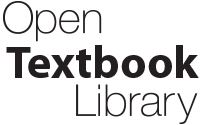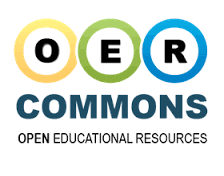Are these lists overwhelming? Reach out to the Library and/or the Center for Academic Innovation for support.
Get help navigating OER portals, hubs, collections, etc.
Start Here
The Mason OER Metafinder (MOM)
The Mason OER Metafinder tool from George Mason University performs a real-time, simultaneous search across 22 different sources of open educational materials. It can take a bit longer than pre-indexed searches, but it provides comprehensive results from a wide array of OER sources.
OASIS
Openly Available Sources Integrated Search (OASIS), developed at SUNY Geneseo, currently searches open content from more than 50 different source repositories.

Find OER: Open Textbook Collections
Hosted by University of Minnesota – Twin Cities. “This library is a tool to help instructors find affordable, quality textbook solutions. All textbooks in this library are complete and openly licensed.” Most books include ratings and reviews by faculty. OTC is a member of the Open Textbook Network (OTN), which supports the Open Textbook Library, through MOBIUS.
Find OER: General OER Collections
OER Commons ![]()
“OER Commons is a dynamic digital content hub, offering a suite of OER implementation supports.”
![]() MERLOT II
MERLOT II ![]()
MERLOT is a curated collection of free and open online teaching, learning, and faculty development services contributed and used by an international education community. It is a product of the California State University System partnering with education institutions, professional societies, and industry.
- Library of Congress Digital Collections
American Memory provides free and open access to written and spoken words, sound recordings, still and moving images, prints, maps, and sheet music that document the American experience. This digital record of American history and creativity, from the collections of the Library of Congress and other institutions, chronicle historical events, people, places, and ideas that continue to shape America. - Community College Consortium for Open Educational Resources
Primarily first- and second-year college/university resources.
- iLumina
A digital library of sharable undergraduate teaching materials for chemistry, biology, physics, mathematics, and computer science. Created by the National Science Digital Library, iLumina is designed to quickly and accurately connect users with the educational resources they need. These resources range in type from highly granular objects, such as individual images and video clips, to entire courses. - Open Education Consortium
“The Open Education Consortium is a worldwide community of hundreds of higher education institutions and associated organizations committed to advancing open education and its impact on global education. We envision a world where everyone, everywhere has access to the education they need to build their futures.” - TED-Ed
TED-Ed is TED’s youth and education initiative. TED-Ed’s mission is to spark and celebrate the ideas of teachers and students around the world. TED-Ed Originals are short animated videos about ideas that spark the curiosity of learners. These original animated videos, paired with questions and resources, make up what are called TED-Ed Lessons.
Evaluate OER
Evaluation Process
Here are a few steps you might take in the evaluation process. If this process seems lengthy, think about the process you follow to review textbooks and other materials for your course. You can use a similar or modified evaluation process.
- Does this OER cover the content you’d like your students to learn in this course or module?
- How accessible is this content? Will it be accessible for your students, or is it too technical? Is it robust and challenging enough for your students?
- How can you use the content? Verify the license that the resource is under. Can you remix or revise the OER as long as it isn’t for commercial purposes? Who do you have to acknowledge or credit if you use it? Will you be able to do so? For more help with this, please contact the library.
- Once you determine how you can use the OER, what would you like to do with it? Does only a portion of it apply to your class? Would you possibly want to combine this OER with another OER or resource? Does the library have access to articles that could act as supplemental readings? We’ll be happy to help you find sources that are licensed under our campus subscriptions!
- As you collect more OER and other resources, you may want to save them in a central location. Take note of how you envision using them. Align these resources with the learning objectives and weekly lessons on your syllabus in order to identify gaps. For more help with this, please contact the Center for Academic Innovation.
Evaluation Rubric
Rubrics for Evaluating Open Educational Resource (OER) Objects
8 separate rubrics for the evaluation of aspects of OERs (including accessibility and quality) created by Achieve.org.
Achieve OER Evaluation Tool Handbook
This handbook has been designed to walk a user through the process of evaluating an online resource using the Achieve Open Educational Resources (OERs) rubrics.



